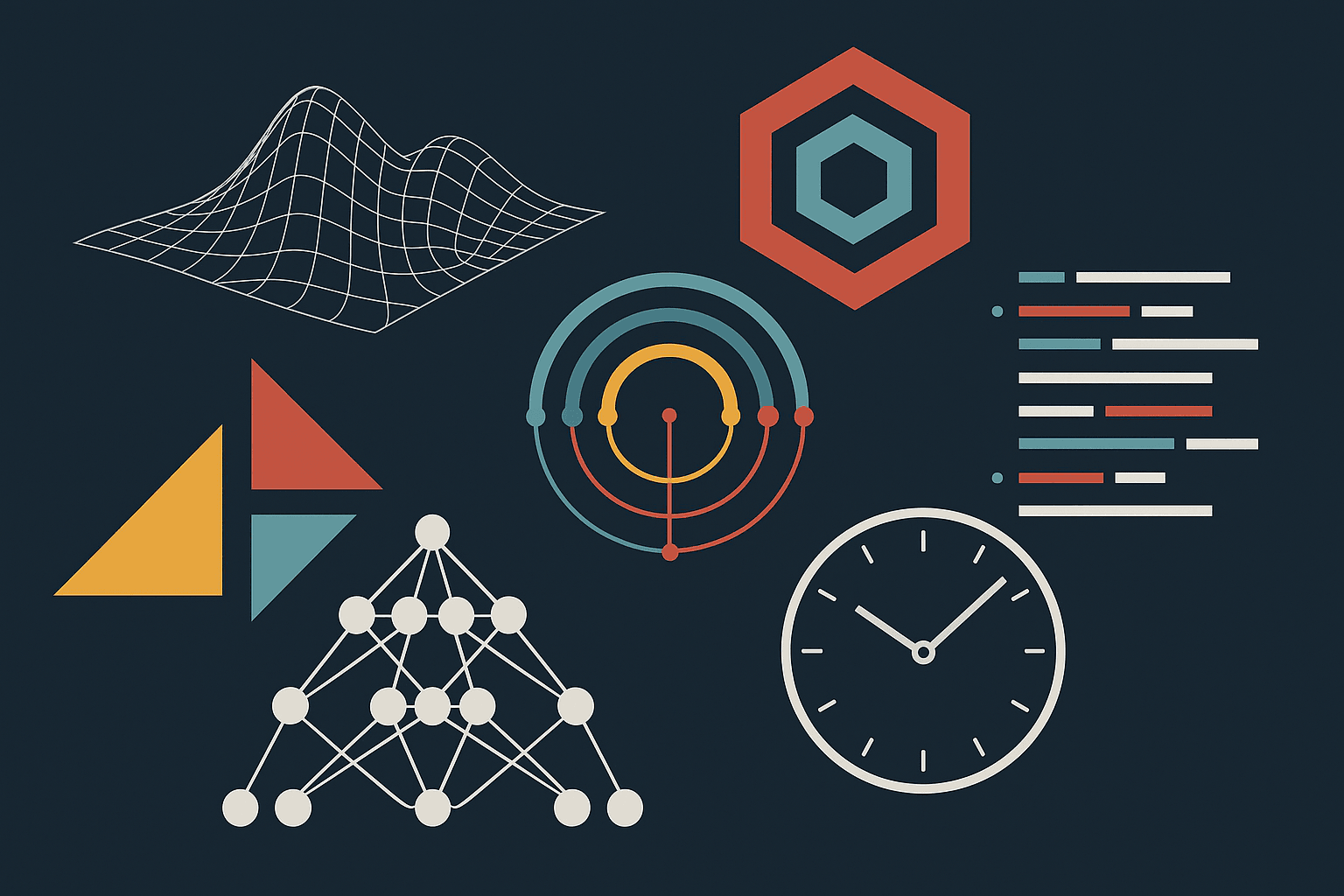
Different Types of Cloud Computing Service Models for Modern Data Platforms
The Foundation: Cloud Computing Service Models
Cloud computing service models provide the framework upon which modern data platforms are built. Each model offers different levels of control, flexibility, and management, allowing organizations to select the approach that best fits their data strategy needs.
Infrastructure as a Service (IaaS)
IaaS provides virtualized computing resources over the internet, offering the greatest flexibility and control over your IT resources.
For Data Platforms:
- Data Lake Storage: IaaS providers offer scalable storage solutions like AWS S3, Google Cloud Storage, and Azure Data Lake Storage, which serve as the foundation for data lakes.
- Compute Resources: Virtualized servers for running data processing engines such as Apache Spark or Hadoop.
- Network Infrastructure: High-speed networking capabilities essential for data movement and integration.
When to Choose IaaS for Data Platforms:
- You need maximum control over your data infrastructure
- Your organization has specific security or compliance requirements
- You're building a custom data architecture that demands flexibility
- You require hybrid cloud capabilities to connect with on-premises systems
Popular IaaS Providers for Data Platforms:
- Amazon Web Services (EC2, S3)
- Google Cloud Platform (Compute Engine, Cloud Storage)
- Microsoft Azure (Virtual Machines, Storage)
Platform as a Service (PaaS)
PaaS provides a platform allowing customers to develop, run, and manage applications without dealing with the complexity of building and maintaining the infrastructure.
For Data Platforms:
- Data Warehousing: Managed solutions like Google BigQuery, Amazon Redshift, and Snowflake provide powerful data warehousing capabilities without infrastructure management.
- Data Integration Services: iPaaS (Integration Platform as a Service) solutions to connect various data sources.
- Analytics Platforms: Services like Databricks that combine processing engines, notebooks, and collaboration tools.
When to Choose PaaS for Data Platforms:
- You want to focus on data engineering rather than infrastructure management
- You need to accelerate time-to-insight with pre-built components
- Your team has data expertise but limited infrastructure experience
- You require scalable solutions that can grow with your data volume
Popular PaaS Providers for Data Platforms:
- Snowflake
- Google BigQuery
- Amazon Redshift
- Databricks
- Azure Synapse Analytics
Software as a Service (SaaS)
SaaS delivers software applications over the internet, eliminating the need for organizations to install, maintain, and update software locally.
For Data Platforms:
- Business Intelligence Tools: Cloud-based BI solutions like Power BI, Tableau Online, and Looker.
- Data Governance Applications: SaaS solutions for cataloging, lineage tracking, and quality management.
- Specialized Analytics Applications: Industry-specific data analysis tools delivered as services.
When to Choose SaaS for Data Platforms:
- You need quick access to specialized data capabilities without development
- Your organization prefers consumption-based pricing models
- You want to empower business users with self-service analytics
- You need standardized data visualization and reporting tools
Popular SaaS Providers for Data Platforms:
- Tableau Online
- Microsoft Power BI
- Looker
- Alteryx
- Alation (for data catalogs)
Emerging Cloud Models for Advanced Data Practice
Beyond the traditional IaaS, PaaS, and SaaS models, several specialized cloud service models have emerged specifically for data applications:
Database as a Service (DBaaS)
DBaaS provides fully managed database solutions, handling administration, maintenance, backups, and scaling.
Notable DBaaS for Data Platforms:
- Amazon RDS and Aurora
- Google Cloud SQL
- Azure Cosmos DB
- MongoDB Atlas
Data as a Service (DaaS)
DaaS focuses on making data available on-demand regardless of geographic or organizational separation between consumers and providers.
Applications in Data Practice:
- External data marketplaces
- Internal data sharing platforms
- API-based data services
Analytics as a Service (AaaS)
AaaS provides cloud-based tools for data analytics, offering advanced capabilities without the need for complex infrastructure or specialized teams.
Key AaaS Solutions:
- Google Data Studio
- Amazon QuickSight
- Azure Analysis Services
Machine Learning as a Service (MLaaS)
MLaaS provides machine learning tools as part of cloud offerings, enabling organizations to develop, train, and deploy ML models without extensive expertise or infrastructure.
Leading MLaaS Platforms:
- Google Vertex AI
- Amazon SageMaker
- Azure Machine Learning
- DataRobot
Building a Comprehensive Data Platform Using Cloud Services
A robust data platform typically leverages multiple cloud service models in tandem to address different aspects of the data value chain:
1. Data Storage and Processing Foundation (IaaS + PaaS)
The foundation of any data platform requires scalable storage and powerful processing capabilities:
- Data Lake storage (IaaS)
- Data Warehouse platforms (PaaS)
- Compute resources for data processing (IaaS or PaaS)
2. Data Integration and Management Layer (PaaS)
Moving and transforming data across the organization:
- ETL/ELT services
- Data pipelines
- Real-time streaming capabilities
3. Governance and Quality Framework (PaaS + SaaS)
Ensuring data is trustworthy and compliant:
- Data catalogs
- Metadata management
- Data quality monitoring
- Security and access controls
4. Analytics and Insight Generation (PaaS + SaaS)
Deriving value from data:
- Business intelligence platforms
- Advanced analytics tools
- AI/ML services
Multi-Cloud and Hybrid Approaches for Data Platforms
Many organizations are adopting multi-cloud or hybrid cloud strategies for their data platforms to:
- Avoid vendor lock-in
- Leverage best-of-breed services
- Address specific compliance requirements
- Optimize costs
Key Considerations for Multi-Cloud Data Platforms:
- Consistent governance across clouds
- Data movement and integration challenges
- Unified security models
- Skills required to manage multiple environments
Selecting the Right Cloud Service Models for Your Data Practice
When building a data practice, the selection of appropriate cloud service models should be guided by:
1. Data Maturity Assessment
Your organization's current data maturity will influence which service models offer the best fit:
- Beginning Data Journey: SaaS and managed PaaS solutions provide quick wins
- Developing Data Capabilities: Mix of PaaS with some IaaS for custom needs
- Advanced Data Organizations: Strategic mix of all service models, with custom solutions where competitive advantage exists
2. Use Case Prioritization
Different data use cases may require different service models:
- Operational Reporting: SaaS BI tools on top of PaaS data warehouses
- Advanced Analytics: Specialized PaaS and MLaaS solutions
- Real-time Data Processing: Combination of IaaS and PaaS for stream processing
3. Skills and Resources
Available expertise within your organization:
- Limited technical resources → Higher-level abstractions (SaaS, PaaS)
- Strong engineering team → More control with IaaS components
- Specialized data science capabilities → MLaaS platforms
4. Cost Considerations
Different service models have different cost structures:
- IaaS: Pay for resources provisioned
- PaaS: Pay for services consumed
- SaaS: Subscription or usage-based pricing
The BluePi Approach to Cloud-based Data Platforms
At BluePi Consulting, we help organizations navigate these choices to build comprehensive data practices that deliver business value. Our approach includes:
- Data Maturity Assessment: Evaluating your current state and defining a roadmap for cloud-based data capabilities
- Cloud Strategy Development: Determining the optimal mix of cloud service models for your specific needs
- Platform Implementation: Designing and building cloud data platforms leveraging appropriate service models
- Governance Integration: Ensuring proper controls across all cloud services
- Continuous Optimization: Monitoring and refining your cloud data platform for optimal performance and cost
Conclusion
The different types of cloud computing service models provide a flexible foundation for building modern data platforms. By understanding the strengths and applications of IaaS, PaaS, SaaS, and specialized data services, organizations can architect solutions that address their unique data challenges while maximizing business value.
As the data landscape continues to evolve, a thoughtful approach to cloud service model selection ensures that your data platform remains adaptable, scalable, and aligned with your organization's data-driven business transformation.

About Kaushik Khanna
A tech and data enthusiast at heart, Kaushik has spent the last 20 years building intricate business systems, mastering the art of making complex flow seamlessly. Now, his eyes are set on the cutting edge of Cloud and Data advancements, eager to translate their potential into real-world solutions. Driven by the belief that “the devil lies in the details,” his approach is meticulous and focused, ensuring every element is perfectly in place for a flawless outcome.
Related Posts
View all postsMost modern data stacks are expensive, cloud-hosted legacy systems. BluePi sees Airflow DAGs become spaghetti, BigQuery treated as infinite, and teams drowning in YAML instead of delivering insights.
Data engineering involves designing systems to collect, store, and analyze data efficiently.
Discover how Snowflake Data Clean Rooms enable privacy-preserving data collaboration across industries. Learn how organizations can unlock insights without moving or exposing sensitive data.
Warm pools eliminate most cold starts; autoscaling is token-aware. Sub-300 ms p95 is theoretically achievable for short prompts on Gemma 2B with a warm replica.
Nested Learning treats models as several coupled optimization problems that run at different speeds (“levels”).




